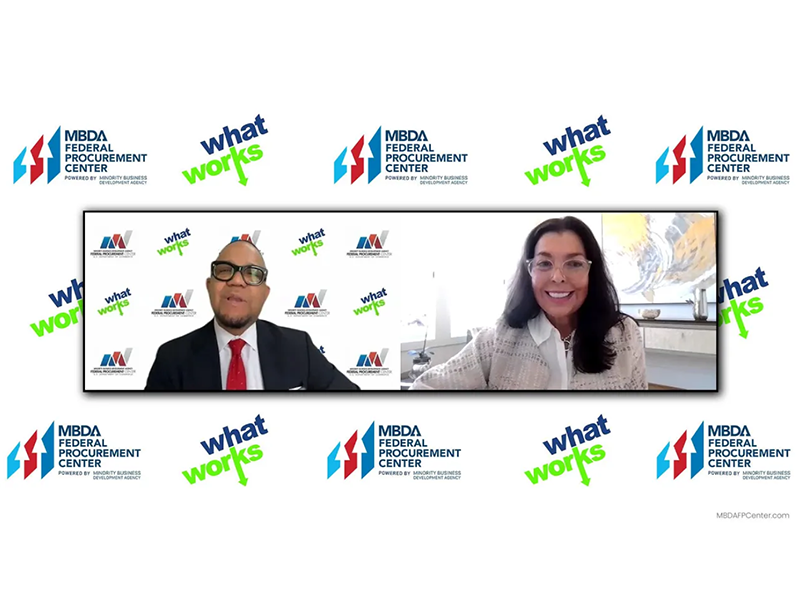Entrepreneur, Innovator, or Low-Wage Employee? Defining Your Role as a Business Owner in 2025
The global economy has entered a new era in 2025, marked by technological advances, shifting workforce dynamics, and evolving business ecosystems. For business owners, the pressing question isn’t just about survival but identity: Are you an entrepreneur, an innovator, or a low-wage employee in your own business? This distinction determines not only your success but also how you contribute to the economy and impact your own livelihood.
The Minority Business Development Agency (MBDA) Federal Procurement Center has a vested interest in empowering business owners to embrace the roles of entrepreneur and innovator while avoiding the pitfalls of being trapped as a low-wage employee. This article explores what these roles mean, why they matter, and how you can position yourself effectively for the future.
Understanding the Roles: Entrepreneur, Innovator, and Low-Wage Employee
The Entrepreneur: Visionary and Risk-Taker
Entrepreneurs are defined by their ability to take calculated risks, identify opportunities, and build businesses that solve problems and create value. They are strategic thinkers, focused on growth and scalability. An entrepreneur leverages resources, builds networks, and understands that success comes from collaboration and delegation.
Key traits of entrepreneurs include:
- Vision: The ability to see opportunities before others.
- Resilience: Perseverance in the face of challenges.
- Delegation: Focusing on high-value tasks while empowering a team to handle operations.
By 2025, entrepreneurs are increasingly tech-savvy, leveraging data analytics, automation, and digital platforms to stay ahead of the curve. The rise of decentralized finance (DeFi), blockchain technology, and artificial intelligence has opened doors to innovative business opportunities. Entrepreneurs now have access to tools that were once reserved for large enterprises, enabling them to scale faster and more efficiently.
The Innovator: Problem-Solver and Creator
Innovators are the creative minds behind revolutionary products, services, or business models. While every entrepreneur might not be an innovator, innovation is a critical skill for maintaining competitiveness. Innovators constantly ask, “How can I make this better?” and push boundaries to deliver groundbreaking solutions.
Innovators in 2025 prioritize:
- Sustainability: Creating solutions that are environmentally and socially responsible.
- Technology Integration: Harnessing AI, machine learning, and other technologies to optimize efficiency.
- Customer-Centric Design: Solving real-world problems in ways that resonate with users.
To excel as an innovator, you must invest in research and development. Whether it’s improving the customer experience, enhancing product functionality, or reducing costs, consistent innovation ensures relevance in a fast-paced market.
The Low-Wage Employee: Stuck in Survival Mode
When business owners fail to step into the roles of entrepreneur or innovator, they risk becoming low-wage employees in their own enterprises. These individuals often:
- Work excessive hours on operational tasks rather than strategic planning.
- Earn minimal returns for their efforts, unable to scale or grow their businesses.
- Lack the systems and processes to create sustainable, profitable operations.
This identity can be a trap, resulting in burnout and stagnation. Being trapped in this mindset limits the potential to grow and contribute meaningfully to the economy. It’s essential to break free from this cycle by adopting a growth-oriented perspective.
The 2025 Business Landscape: Challenges and Opportunities
Challenges for Business Owners
The landscape of 2025 is both exciting and daunting. Key challenges include:
- Technological Disruption: The rapid pace of change requires constant adaptation. Staying up-to-date with technology can be resource-intensive but is crucial for survival.
- Global Competition: The digital economy has made international competition fiercer than ever. Small businesses must differentiate themselves to compete with global players.
- Workforce Expectations: Employees demand flexibility and purpose-driven work environments. Attracting and retaining top talent requires cultural shifts and innovative workplace policies.
- Economic Uncertainty: Inflation, supply chain disruptions, and political instability can impact growth, making financial planning more complex.
Opportunities for Growth
Amid challenges, 2025 also offers unprecedented opportunities:
- Digital Transformation: Embracing technology can streamline operations and increase profitability. Tools such as cloud computing, IoT devices, and automation systems offer cost-effective solutions for small businesses.
- Access to Capital: Programs like those offered by the MBDA Federal Procurement Center provide resources and funding opportunities for minority-owned businesses. Entrepreneurs can now access grants, low-interest loans, and equity financing designed to level the playing field.
- Government Contracts: Federal procurement opportunities are expanding, giving small businesses a chance to thrive in the public sector. This is particularly beneficial for minority-owned businesses seeking consistent revenue streams.
- Diverse Markets: Changing demographics and consumer preferences create new markets to serve. Catering to underserved communities, for example, offers significant growth potential.
Stepping Into the Entrepreneurial Role
Embrace Strategic Thinking
To become a true entrepreneur, you must think beyond daily operations. Develop a clear business plan with measurable goals and revisit it regularly. Strategic planning allows you to anticipate challenges, allocate resources effectively, and stay focused on long-term growth.
Leverage Technology
Automate routine tasks to free up time for strategic initiatives. Utilize tools like customer relationship management (CRM) systems, analytics platforms, and project management software to optimize efficiency. By 2025, businesses are increasingly leveraging AI-driven platforms to personalize customer experiences, forecast demand, and improve decision-making.
Build a Strong Team
A successful entrepreneur surrounds themselves with capable individuals who share their vision. Invest in your team’s professional growth and foster a collaborative culture. Employee empowerment leads to higher productivity and loyalty, creating a foundation for sustainable growth.
Focus on Value Creation
Shift your mindset from working in the business to working on the business. Identify ways to scale, diversify revenue streams, and create sustainable systems. Strategic partnerships, for instance, can open doors to new markets and opportunities.
The Power of Innovation in 2025
Adopt a Growth Mindset
Innovation requires openness to new ideas and willingness to experiment. Encourage brainstorming and invest in research and development. A growth mindset fosters resilience and adaptability, helping you navigate uncertainties.
Stay Ahead of Trends
Monitor industry trends and emerging technologies. Attend conferences, join professional organizations, and network with other innovators. By staying informed, you can anticipate shifts in consumer behavior and market demands.
Collaborate with Experts
Partnerships can drive innovation. Collaborate with universities, tech firms, or consultants to access cutting-edge expertise. Co-creating solutions with others often results in breakthroughs that individual efforts might not achieve.
Measure Impact
Evaluate the effectiveness of your innovations. Use metrics to assess improvements in efficiency, customer satisfaction, or profitability. Regular assessment ensures that your efforts align with business goals.
Avoiding the Low-Wage Employee Trap
Recognize Your Worth
Understand that as a business owner, your time is valuable. Avoid undervaluing your contributions by undercharging or overworking. A fair pricing strategy, coupled with effective delegation, ensures you’re not burdened by routine tasks.
Set Boundaries
Create a clear separation between your personal and professional life. Delegate tasks and set realistic working hours to prevent burnout. Healthy boundaries are critical for long-term sustainability.
Develop Systems
Implement processes that allow your business to function without your constant involvement. This could include standard operating procedures, training manuals, or automated workflows. Scalable systems empower your team to handle day-to-day operations, freeing you to focus on growth strategies.
Seek Mentorship and Support
Programs like those at the MBDA Federal Procurement Center offer guidance, mentorship, and resources to help you grow your business strategically. Mentorship provides invaluable insights and helps you avoid common pitfalls.
Scaling Your Impact as an Entrepreneur and Innovator
As a business owner, your success doesn’t just affect your bottom line; it impacts your community and industry. Scaling your business involves taking strategic steps that enhance your influence:
Adopt Scalable Business Models
Whether through franchising, licensing, or leveraging digital platforms, ensure your business model allows for sustainable growth without compromising quality. Scalability ensures that growth doesn’t become overwhelming.
Invest in Leadership Development
Strong leaders drive growth. Provide leadership training for your team and cultivate a pipeline of talent that shares your vision. Effective leaders inspire innovation and collaboration within their teams.
Emphasize Community Impact
Social responsibility and community engagement aren’t just ethical—they’re strategic. By giving back, you enhance your brand reputation and build goodwill with customers and stakeholders. A commitment to community impact attracts socially conscious consumers.
Stay Agile
Flexibility is key to thriving in the ever-changing economy of 2025. Continuously evaluate your business strategies and be willing to pivot when necessary. Agility enables businesses to respond quickly to unexpected challenges or opportunities.
Conclusion: Define Your Role and Thrive in 2025
The question of 2025—whether you are an entrepreneur, innovator, or low-wage employee—is one that every business owner must answer. The choice is yours. By adopting an entrepreneurial mindset, embracing innovation, and leveraging resources like those offered by the MBDA Federal Procurement Center, you can position your business for long-term success.
Don’t settle for survival. Aim for leadership, growth, and impact. Visit www.mbdafpcenter.com today to listen to our podcast and learn how you can redefine your role as a business owner and thrive in the 2025 economy.








